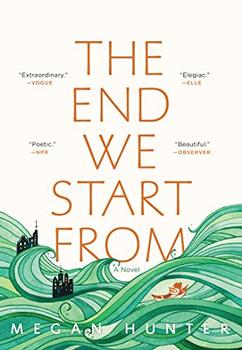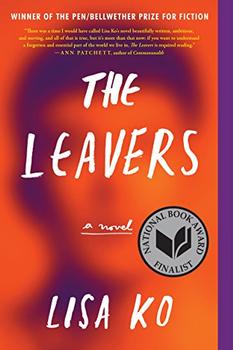Summary | Excerpt | Reading Guide | Reviews | Beyond the book | Read-Alikes | Genres & Themes | Author Bio

A gripping tale of adventure and searing reality, Lucky Boy gives voice to two mothers bound together by their love for one lucky boy.
Solimar Castro Valdez is eighteen and drunk on optimism when she embarks on a perilous journey across the US/Mexican border. Weeks later she arrives on her cousin's doorstep in Berkeley, CA, dazed by first love found then lost, and pregnant. This was not the plan. But amid the uncertainty of new motherhood and her American identity, Soli learns that when you have just one precious possession, you guard it with your life. For Soli, motherhood becomes her dwelling and the boy at her breast her hearth.
Kavya Reddy has always followed her heart, much to her parents' chagrin. A mostly contented chef at a UC Berkeley sorority house, the unexpected desire to have a child descends like a cyclone in Kavya's mid-thirties. When she can't get pregnant, this desire will test her marriage, it will test her sanity, and it will set Kavya and her husband, Rishi, on a collision course with Soli, when she is detained and her infant son comes under Kavya's care. As Kavya learns to be a mother - the singing, story-telling, inventor-of-the-universe kind of mother she fantasized about being - she builds her love on a fault line, her heart wrapped around someone else's child.
Lucky Boy is an emotional journey that will leave you certain of the redemptive beauty of this world. There are no bad guys in this story, no obvious hero. From rural Oaxaca to Berkeley's Gourmet Ghetto to the dreamscapes of Silicon valley, author Shanthi Sekaran has taken real life and applied it to fiction; the results are moving and revelatory.
The alternate points of view keep the cast of characters and their separate stories rotating at a steady and even pace for the first two-thirds of the novel, intensifying later to nail-biting tension with hair-raising stakes. Towards the end, pages fly as the story careens towards a heartbreaking but emotionally satisfying resolution...continued
Full Review
(994 words)
This review is available to non-members for a limited time. For full access,
become a member today.
(Reviewed by Sharry Wright).
In the beginning of Lucky Boy, as Soli makes her way from Mexico to the United States, she spends several nights in a relief camp set up by Grupos Beta, a service agency operated by Mexico's National Institute of Migration (INM), that offers water, shelter, medical aid, and information to migrants at risk.
There are currently 22 Grupos Beta operations in nine Mexican states: Baja California, Sonora, Chihuahua, Coahuila, Tamaulipas, Veracruz, Tabasco, Chiapas and Oaxaca. Started in 1990 as a kind of border patrol that protects rather than detains migrants, the basic role of the federal entity is to safeguard the human rights of migrants who might face serious dangers and health risks such as heat stroke, dehydration, and hyperthermia ...
This "beyond the book" feature is available to non-members for a limited time. Join today for full access.

If you liked Lucky Boy, try these:

by Megan Hunter
Published 2018
A searing original, a modern-day parable of rebirth and renewal, of maternal bonds, and the instinct to survive and thrive in the absence of all that's familiar.

by Lisa Ko
Published 2018
Finalist for the 2017 National Book Award for Fiction.
Named a Best Book of 2017 by NPR, Entertainment Weekly, the Los Angeles Times, BuzzFeed, Bustle, and Electric Literature, Lisa Ko's debut novel is essential reading for our times.
A classic is a book that has never finished saying what it has to say
Click Here to find out who said this, as well as discovering other famous literary quotes!